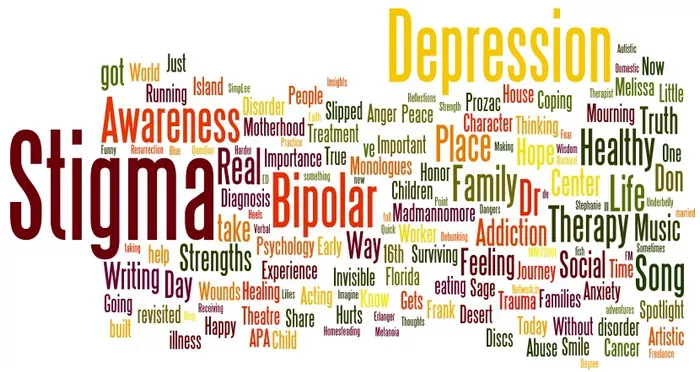Sleep plays a pivotal role in mental health, and for individuals with bipolar disorder, maintaining a regular sleep schedule is essential. Bipolar disorder is characterized by mood swings ranging from manic or hypomanic episodes to depressive episodes, both of which can significantly affect sleep patterns. Understanding the optimal amount of sleep and strategies to regulate it is critical in managing this condition.
The Role of Sleep in Bipolar Disorder
The Impact of Sleep on Mood Stability
Sleep disturbances are a hallmark of bipolar disorder, often serving as both a symptom and a trigger for mood episodes. During manic or hypomanic phases, individuals may experience a decreased need for sleep without feeling tired, while depressive episodes can lead to insomnia or hypersomnia (excessive sleeping). Inadequate or irregular sleep exacerbates mood instability, potentially triggering episodes or worsening existing symptoms.
Sleep as a Diagnostic Criterion
Sleep changes are so integral to bipolar disorder that they are part of the diagnostic criteria in the DSM-5 (Diagnostic and Statistical Manual of Mental Disorders). The interplay between sleep and mood underscores the importance of addressing sleep concerns in treatment plans.
How Many Hours of Sleep Are Ideal?
General Sleep Recommendations
For adults, the general recommendation is 7 to 9 hours of sleep per night. This range allows for restorative sleep, which is vital for physical and mental health. However, individuals with bipolar disorder may have unique sleep needs based on their mood state and personal circumstances.
Sleep Needs During Different Mood States
Manic or Hypomanic Episodes
During mania, individuals often feel an intense drive to stay awake and engage in activities, leading to reduced sleep duration. Despite feeling energized, the lack of sleep can rapidly escalate mania and increase the risk of psychosis. Aiming for at least 6 hours of sleep, even during manic states, is critical.
Depressive Episodes
In depressive phases, individuals may experience either insomnia or hypersomnia. Striving for 7 to 9 hours of consistent sleep can help mitigate feelings of fatigue and lethargy.
Euthymic (Stable) Phases
During periods of mood stability, adhering to a regular sleep schedule with 7 to 9 hours of rest helps maintain balance and reduces the risk of triggering episodes.
The Science Behind Sleep and Bipolar Disorder
The Circadian Rhythm Connection
The body’s internal clock, or circadian rhythm, governs sleep-wake cycles. Disruptions to this rhythm are common in bipolar disorder, with research suggesting that these irregularities may be both a cause and consequence of mood episodes. Stabilizing the circadian rhythm through consistent sleep and wake times can be a powerful tool in managing bipolar disorder.
REM Sleep and Bipolar Disorder
Rapid Eye Movement (REM) sleep, a crucial stage for emotional regulation and memory processing, is often disrupted in bipolar disorder. Individuals with bipolar disorder may enter REM sleep faster and spend more time in this stage, potentially leading to vivid dreams and fragmented sleep patterns. Ensuring sufficient sleep allows for a more balanced distribution of sleep stages.
Strategies to Improve Sleep in Bipolar Disorder
Establishing a Routine
Creating a structured daily schedule is one of the most effective ways to regulate sleep. Key practices include:
Consistent Sleep and Wake Times: Going to bed and waking up at the same time each day, even on weekends, helps stabilize the circadian rhythm.
Pre-Sleep Rituals: Engaging in calming activities, such as reading or taking a warm bath, signals to the body that it’s time to wind down.
Sleep Hygiene Practices
Good sleep hygiene is essential for everyone but particularly crucial for those with bipolar disorder. Key tips include:
Limiting Screen Time: Reducing exposure to blue light from devices at least an hour before bed can enhance melatonin production.
Creating a Sleep-Friendly Environment: A dark, quiet, and cool bedroom promotes restful sleep.
Avoiding Stimulants: Limiting caffeine, nicotine, and alcohol intake in the evening reduces disruptions to the sleep cycle.
Medication Management
For some individuals, medications such as mood stabilizers or antipsychotics may be necessary to regulate mood and improve sleep. Consulting with a healthcare provider ensures that medications are tailored to individual needs and do not exacerbate sleep issues.
Cognitive Behavioral Therapy for Insomnia (CBT-I)
CBT-I is a specialized form of therapy that addresses negative thoughts and behaviors related to sleep. It has proven effective for individuals with bipolar disorder by helping them develop healthier sleep patterns.
Challenges and Considerations
Sleep Deprivation as a Treatment
Interestingly, controlled sleep deprivation has been explored as a rapid-acting treatment for bipolar depression. However, this approach must be closely monitored by professionals, as it carries the risk of triggering mania.
Medication Side Effects
Some medications used to treat bipolar disorder, such as sedatives or mood stabilizers, may cause drowsiness or disrupt natural sleep architecture. Regular follow-ups with a psychiatrist can help address these issues.
Stress and Lifestyle Factors
Stress, diet, and physical activity also play a role in sleep quality. Incorporating stress-reduction techniques like mindfulness, yoga, or regular exercise can complement other sleep strategies.
Conclusion
For individuals with bipolar disorder, achieving the right amount of sleep is both an art and a science. While the general recommendation is 7 to 9 hours per night, individual needs may vary depending on mood state and personal circumstances. Establishing a consistent sleep routine, practicing good sleep hygiene, and seeking professional support when necessary are all vital steps in maintaining mood stability and overall well-being.
By prioritizing sleep as a cornerstone of mental health, individuals with bipolar disorder can better navigate the challenges of their condition and lead fulfilling lives.
You Might Be Interested In:

